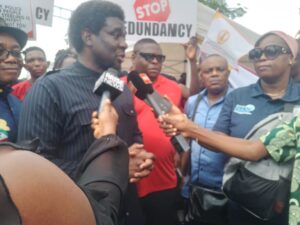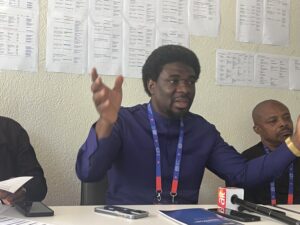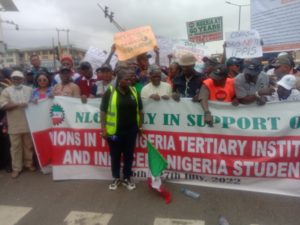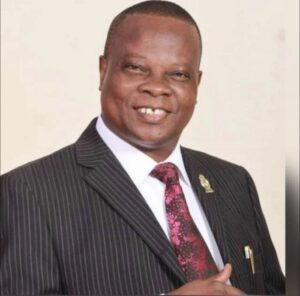Chemical sector’s sustainability: Stakeholders chart path for survival

As the stakeholders in the chemical sector gathered last week in Ilorin, Kwara State, the major concern was how to reposition the industry which presently like other sectors of the economy grasping for breath and in need of economic resuscitation and resurgence.
The usual quiet conference hall came alive with the voices of labour leaders, employers, and policy advocates. The occasion was the 33rd Annual Industrial Relations Seminar of the National Union of Chemical, Footwear, Rubber, Leather, and Non-Metallic Products Employees (NUCFRLANMPE), where the central theme struck directly at the heart of Nigeria’s challenges: “Building Human Capacity for Enhancing Productivity and Personnel Welfare in the Midst of Economic Hardship.”
From the opening address of Bolarinwa Olusola Sunday, the union’s new national president, it was clear that the gathering was not business as usual.
He reminded participants that Nigeria’s economy had created “a herculean task” for both employers and employees. “Fuel subsidy removal, high electricity tariffs, multiple taxes, forex instability, and galloping inflation have conspired to weaken productivity and erode workers’ welfare,” he said.
For many in the audience, his words were a mirror of daily struggles. Bolarinwa noted that wage increases meant little when inflation swallowed the gains.
“Workers fared better when the minimum wage was ₦30,000 with the Naira at ₦450 to a dollar than now at ₦70,000 with the Naira at ₦1,550,” he explained, sparking murmurs of agreement in the hall.
He warned of a disturbing shift in industrial relations, where survival pressures were pushing employers to adopt practices harmful to workers’ dignity.
“Casualisation, outsourcing, and contract staffing are fast replacing regular employment. Precarious work is replacing decent work,” Sunday cautioned. Job losses through redundancy, he added, had become a daily occurrence.
But the union leader also stressed that complaining alone would not provide solutions. He called for urgent reforms to reverse the trend, urging government to diversify the economy, stabilize forex, invest in infrastructure, and create value-added industries. “Only then can productivity and welfare rise together,” he said.
In his keynote, Mr. Olufemi Oke, Executive Secretary of the Chemical and Non-Metallic Products Employers Federation (CANMPEF), sought to inject a note of balance. While acknowledging the hardship, he insisted that organisations must rise to the challenge through innovation and human development. Quoting Bob Riley, he said: “Hard times don’t create heroes. It is during the hard times when the hero within us is revealed.”
Training
For Oke, the answer lay in building human capacity across three fronts: skillset, mindset, and toolset. “In economic hardship, well-trained and resilient employees are the greatest asset of any organisation. An investment in people pays long-term dividends,” he said, urging managers to prioritise training and resilience.
He suggested practical ways companies could cope despite limited resources: cross-training workers for multiple roles, using affordable e-learning platforms, and encouraging peer-to-peer mentorship.
“Productivity is not about doing more with less; it’s about creating more value with what you have,” Oke stressed.
Workers welfare
Both leaders, though speaking from different sides of the table, agreed on one central point: welfare is not negotiable. Oke reminded employers that “employees under severe stress cannot deliver peak performance,” while Sunday urged government and industry to adopt policies that support production and decent work.
Sunday’s address also lifted the lid on troubling practices in some factories along the Lagos–Isagamu–Ibadan corridor, where he alleged workers were subjected to near-slavery conditions. “Workers live under strict military control, facing inhuman punishment. But it is not over until it is over. We are strategising through the NLC and Ministry of Labour to fight this,” he vowed, drawing applause.
Oke, too, pressed for partnership, urging both management and employees to share responsibility for survival. “Management must create a welfare-driven culture, but workers must also embrace adaptability and collaboration,” he advised.
The employers’ chief warned that neglecting welfare in the name of cutting costs would be counterproductive. “It leads to burnout, low morale, and reduced output. Investing in resilience training and innovation will keep organisations afloat,” he said.
Investments
Despite the stormy picture, Sunday reassured members of his commitment since assuming office. He highlighted ongoing union projects aimed at diversifying revenue, including a guest house now in operation, a multipurpose mall under construction, and plans for a residential building in Abuja. “Your concerns are mine; your happiness is mine; your struggles are mine. We are Siamese twins in this journey,” he said passionately.
Beyond infrastructure, the union has renewed partnerships with international organisations such as Friedrich Ebert Foundation and IndustriALL Global Union to provide capacity-building programmes. Sunday credited these collaborations with fostering industrial peace. “Our sector has moved beyond adversarial relations. We now strive for sustainable partnership,” he explained.
Meanwhile, the NUCFRLANMPE boss paid glowing tribute to labour veterans, describing them as “role models” whose wisdom continued to guide the movement. He also praised employers who sponsored their workers to the seminar, noting that “to whom much is given, much is expected.”
The seminar ended on a hopeful but sober note. Both sides acknowledged that Nigeria’s workers are caught in the storm of economic hardship, but insisted that collaboration and human capacity development offered a way forward. “The era of adversarial relationships is fading. Sustainable partnership is the way,” Sunday concluded.
As the participants dispersed, one message lingered: survival in Nigeria’s turbulent economy will not come from blame games, but from joint sacrifice, stronger advocacy, and investment in people. Or as Oke put it bluntly: “Productivity isn’t about doing more; it’s about creating more impact with less stress.”




